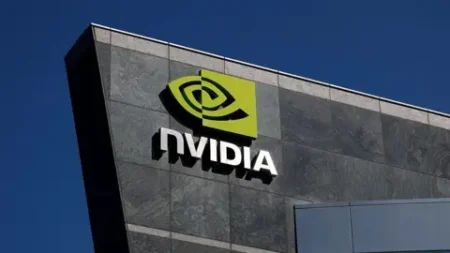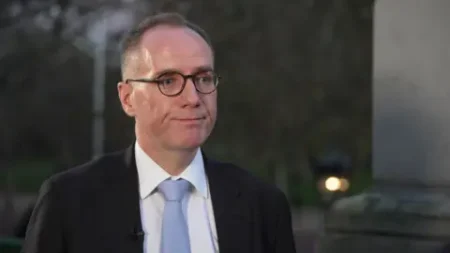In a significant move towards enhancing child safety online, around 6,000 pornographic websites operating within the United Kingdom will begin implementing age verification measures starting Friday. This initiative, overseen by the media regulator Ofcom, marks a critical step in safeguarding young internet users from potentially harmful content. According to Dame Melanie Dawes, the chief executive of Ofcom, there is a burgeoning commitment from the tech industry to reinforce child safety in the digital realm, which is seen as a revolutionary attempt unmatched by any other country.
Dawes highlighted in a recent interview on BBC Radio Four’s flagship program, Today, that this initiative is not merely rhetorical but rather a tactical shift by many platforms, with high-profile companies such as Elon Musk’s X (formerly Twitter) also agreeing to implement age checks. However, reports indicate that at least one major pornographic site has not conformed to these new requirements as of Friday morning, raising questions about the overall effectiveness of the regulations.
Skepticism remains among various experts regarding the robustness of Ofcom’s age verification measures. Concerns primarily focus on how easily young individuals might bypass these checks, undermining their intended purpose. To address these challenges, Ofcom noted that additional platforms like Discord, X, social media app Bluesky, and dating application Grindr have committed to adopt age verification systems. Additionally, prominent websites such as Pornhub and Reddit, which is notably recognized as the UK’s most visited porn site, have already started to enforce age checks across numerous topic-based subreddits.
The Technology Secretary, Peter Kyle, emphasized that the recent regulatory measures reflect ‘common sense’ in regulating the internet. He pointed out the inconsistency where people are often required to provide age verification for physical products like energy drinks yet are not subjected to the same scrutiny when accessing explicit content online. This inconsistency underscores the necessity of asserting more stringent regulations online.
Turning to the broader implications of these changes, the new online safety rules aim to ensure that internet services prioritize child protection as a fundamental responsibility. Chris Sherwood, the chief executive of the NSPCC (National Society for the Prevention of Cruelty to Children), welcomed these regulations, affirming that tech companies can no longer disregard their duty to protect children from inappropriate content. He echoed the sentiment that the onus of ensuring safety should not fall solely on children and their parents.
Academics, such as Professor Elena Martellozzo from the University of Edinburgh, added that these regulations send a clear message to the tech industry about the indispensability of child protection. She stated that companies can no longer excuse inaction by referring to technical complexities or business model challenges. Nevertheless, opinions diverge on whether the measures will sufficiently ensure the safety of children online. Critics, including the Molly Rose Foundation, founded by the family of 14-year-old Molly Russell, who tragically lost her life due to harmful online content, argue that more robust legislation is necessary to truly protect minors.
The foundation’s chief executive, Andy Burrows, accused Ofcom of placing the interests of large tech companies above children’s safety. Similarly, others express concerns that the current age verification framework may lead individuals to seek unregulated and potentially more harmful content elsewhere on the internet.
Despite the announcement of age verification checks, there are ongoing apprehensions about the potential backlash against marginalized groups, such as the LGBTQ+ community, who may hesitate to disclose their identities when age verification requires personal information. Experts argue that ensuring user privacy during this verification process is crucial, as people worry about how their identification information could be handled.
In conclusion, with the rollout of age verification measures on pornographic websites in the UK, the narrative surrounding online safety for children takes a pivotal turn. While proponents view these regulations as a necessary evolution, critics highlight significant gaps that still need addressing to safeguard vulnerable populations effectively. The pathway ahead remains fraught with challenges, particularly in balancing child protection with individual rights and privacy.











